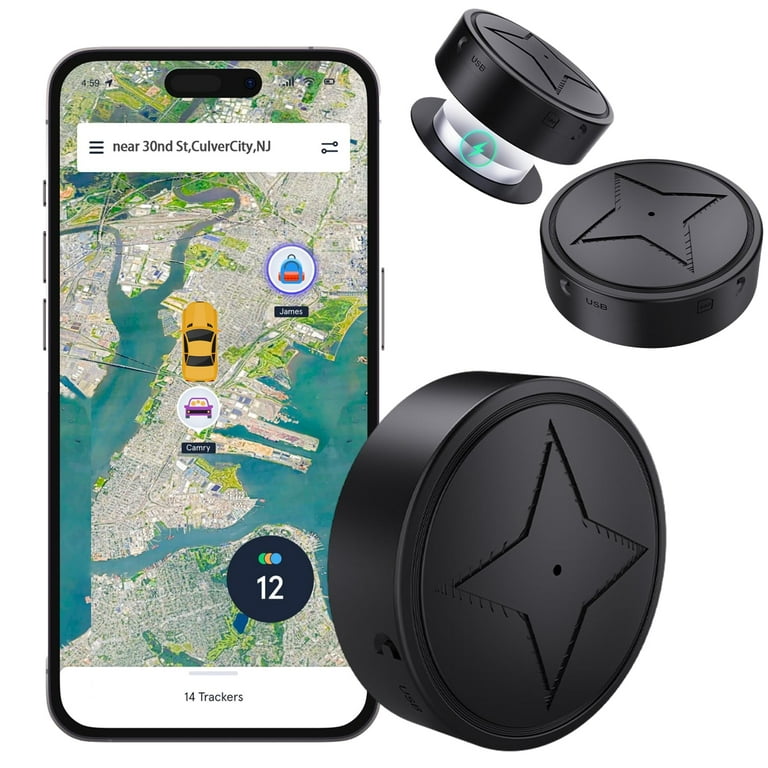Affordable GPS Tracking Options: Discover the Right Solution for You
Affordable GPS Tracking Options: Discover the Right Solution for You
Blog Article
Browsing the Future of GPS Tracking: Advancements, Difficulties, and Opportunities Ahead
As we stand at the crossroads of technical advancements and social effects, the landscape of General practitioner monitoring is positioned for a transformative journey ahead. With terrific technology comes excellent responsibility, as information privacy concerns impend big and protection difficulties in GPS tracking raise important questions about securing sensitive information.
Advancement of GPS Innovation
The Evolution of GPS Modern technology has actually been marked by significant improvements in precision, insurance coverage, and effectiveness over the years. Initially established for armed forces functions, GPS technology has progressed to become a common device in different fields, including transportation, logistics, agriculture, and individual navigating. Early GPS systems were identified by minimal insurance coverage, lower accuracy, and bulkier hardware requirements. With ongoing technological advancements, GPS has actually transitioned to much more efficient and accurate systems that supply worldwide coverage and enhanced accuracy.
One key milestone in the evolution of GPS technology was the growth of Discerning Accessibility (SA) in the 1990s, which purposefully degraded the accuracy of noncombatant general practitioner signals. The discontinuation of SA in 2000 significantly improved GPS accuracy for civilian individuals. Succeeding developments, such as the release of extra satellite constellations like Galileo and BeiDou, have better enhanced GPS protection and accuracy, making it a crucial device in everyday life. As GPS modern technology remains to progress, we can anticipate more improvements in precision, protection, and efficiency, opening up new possibilities for advancement and applications across different industries.
Real-Time Monitoring Improvements
Building on the advancements in GPS innovation that have revolutionized precision and insurance coverage, real-time tracking has emerged as a crucial area of innovation with extensive implications throughout different fields. Real-time monitoring improvements allow services and companies to monitor lorries, employees, and assets immediately, offering useful insights for decision-making processes - gps tracking. By leveraging real-time data, business can enhance operational performance, improve client service, and guarantee the safety and security and security of their properties
Among the vital advancements in real-time tracking is the integration of synthetic intelligence and machine understanding formulas, which allow predictive analytics and anomaly discovery. These capabilities allow for aggressive upkeep scheduling, route optimization, and risk reduction methods. Moreover, the advancement of real-time monitoring systems has led to the development of mobile applications and personalized dashboards, empowering customers to gain access to vital details anytime, anywhere.
Information Privacy Worries
Data privacy concerns incorporate various facets, consisting of the storage, sharing, and retention of place data. Companies should implement durable safety steps to safeguard GPS monitoring data from cyber hazards and information violations. Clear policies regarding data collection practices and the objective of tracking are important to build count on with consumers and ensure conformity with information protection regulations.

Safety Difficulties in GPS Tracking
Addressing data personal privacy worries in GPS tracking is delicately connected to alleviating the security challenges that occur from prospective susceptabilities in the modern technology. One of the primary protection challenges in GPS tracking is the threat of unapproved access to delicate place data.

Another safety obstacle is the potential for spoofing or obstructing GPS signals. By interfering or transmitting incorrect signals with legitimate ones, destructive actors can trick GPS receivers and manipulate place information. This positions threats not only for private customers but likewise for governmental and military applications that depend on specific placing information. Applying durable file encryption, verification steps, and signal verification protocols are critical actions in addressing these safety and security obstacles in GPS monitoring.
Emerging Opportunities in the Industry
The growing area of GPS monitoring modern technology provides a myriad of encouraging possibilities for industry growth my sources and development. One key possibility exists in the expansion of General practitioner tracking applications beyond standard sectors. General practitioner tracking can change person treatment by enabling remote tracking of essential indications and guaranteeing prompt medical help.
In addition, the enhancing need for linked devices and IoT services provides a ripe possibility for General practitioner tracking business to increase their offerings and develop innovative services that cater to a much more connected globe. By taking advantage of on these arising opportunities, GPS tracking firms can position themselves for continual development and success in the dynamic landscape of the sector.
Verdict
In verdict, the future of General practitioner tracking is marked by continual development and advancement in modern technology. As the industry moves onward, browsing these challenges will be crucial to make sure content the ongoing growth and success of General practitioner monitoring modern technology.
With fantastic technology comes excellent duty, as data privacy concerns impend huge and safety and security difficulties in GPS monitoring raise relevant concerns concerning protecting sensitive information.With the quick proliferation of GPS monitoring technology in numerous sectors, attending to data personal privacy concerns has actually come to be a critical crucial for both consumers and organizations alike. The collection of place information via GPS tracking raises considerable personal privacy concerns, as it makes it possible for the tracking of individuals' movements and habits. Companies utilizing General practitioner click this site tracking need to prioritize guarding this data to stop unapproved access or abuse that could jeopardize people' privacy civil liberties.
Services have to carry out robust protection steps to shield General practitioner monitoring information from cyber threats and information violations.
Report this page